 Praise for Our Search for Belonging Howard Ross transformed our understanding of both bias and unconscious bias with his wonderful book Everyday Bias. Now he is transforming our understanding of why we have people in America both tribalizing and too often fi ghting each other in damaging and dysfunctional tribal ways. This book is a must-read for anyone who wants to understand the mess we are in today and what we need to do now to give us a better future for our organizations, our communities, and even our nation. This will be another iconic book. George Halvorson, former CEO, Kaiser PermanenteOur Search for Belonging is a powerful statement of hope in a disquieting time. Our social divide is creating major challenges on college campuses, in work places, and in society itself.
Praise for Our Search for Belonging Howard Ross transformed our understanding of both bias and unconscious bias with his wonderful book Everyday Bias. Now he is transforming our understanding of why we have people in America both tribalizing and too often fi ghting each other in damaging and dysfunctional tribal ways. This book is a must-read for anyone who wants to understand the mess we are in today and what we need to do now to give us a better future for our organizations, our communities, and even our nation. This will be another iconic book. George Halvorson, former CEO, Kaiser PermanenteOur Search for Belonging is a powerful statement of hope in a disquieting time. Our social divide is creating major challenges on college campuses, in work places, and in society itself.
By helping us understand the reasons for the divide and the things we can do about it, Howard Ross has provided guidelines for a future that does not have to be limited by our past. A must-read! Dr. Kristina Johnson, Chancellor, State University of New York Our fi eld has an abundance of talkers, folks who have an opinion they feel obligated to share. We dont need more of either. We need more thinkers, more analysts of substance. In a world where national and tribal boundaries impose a defensive obsession with our differences, Howard has stepped in to fi ll that void.
Legendary IBM CEO Thomas J. Watson, Jr., said, We serve our interests best when we serve the public interest. In my own work I have focused on the thought, We talk to one another, not about one another. In Our Search for Belonging, Howard is connecting those dots at a time when our societal survival is threatened. Global, national, local, or tribalconnect and respect are challenges we seem unable to execute. J. T. (Ted) Childs, former Chief Diversity Offi cer, IBM In a compelling narrative style that rests on a foundation of cutting-edge research, Howard Ross describes a paradox of belonging: a psychological need to be em-bedded in a group has produced an ideologically segregated America. (Ted) Childs, former Chief Diversity Offi cer, IBM In a compelling narrative style that rests on a foundation of cutting-edge research, Howard Ross describes a paradox of belonging: a psychological need to be em-bedded in a group has produced an ideologically segregated America.
To erase those tribal boundaries requires a deeper sense of belonging, which Ross suggests we might fi rst achieve in an unexpected place: at work. At work, people see and experience difference as benefi cial. And at work, people can learn behaviors that produce a more inclusive belonging. Scott E. Page, PhD, Leonid Hurwicz Collegiate Professor of Complex Systems,Political Science, and Economics, University of Michigan, and author of TheDiversity Bonusand The Difference 501-72762_ch00_6P.indd 1 2/24/18 8:02 AM The increasing polarization that exists in our society today can be a real impediment Once again, Howard Ross has tackled the thorny divisive issues of our daydemo to producing the results we need and want in business and in politics. In this book, graphic diversity, politics, social justiceby shining the light of humanity on them.
Howard Ross helps us understand the importance of breaking down those barriers Through solid examples, he gives the reader space and context for understanding and provides powerful tools for how to do it. how and why we all have the potential to create us versus them dynamics. His Manny Chirico, Chairman and CEO, PVH Corp. book serves as a road map that takes the reader on an empowering journey toward owning our part in creating inclusive cultures and helping others to belong. In a nation with so much division, Our Search for Belonging is a much-needed Natalie Holder, diversity executive of a federal law enforcement agency read to educate us all on the importance of the inclusion of women and men across all distinctions of diversity both personally and professionally. Howard In this thought-provoking book, Howard Ross delves into one of the most important Ross explores and captures a broad range of topics and issues that I believe is issues of our time, namely, how the human yearning for belonging can paradoxically crucial to uniting humankind and our divided nation. sow the seeds of division.
Drawing on evidence from a wide range of disciplines, the Dr. Sheila A. Robinson, Publisher and CEO, Diversity Woman Media book delivers potential solutions for mending our fractured society. This book should be required reading for anyone wishing to chart a better course for humanityin Our Search for Belonging is a timely and wonderful gift to our national com this regard, it could be one of the most important books of the year. munity as we struggle to fi nd connection in the disparate views and feelings Sukhvinder S. Obhi, PhD, Director, Social Brain, Body and Action Lab, McMaster that divide us.
It offers a guiding light of innovative and creative thinking University grounded in impeccable research and scientifi c observation. This book is a necessary must-read to those wishing to further connect with the better in In this groundbreaking book, Howard Ross uses his keen insight and decades-long themselves regarding the isms and biases that we all carry as baggage in experience in the fi eld of diversity and inclusion to explore how the human tendency our lives. Our Search for Belonging is beautiful, powerful, and uplifting as it to belong and include also leads to tribalism and exclusion. Calling the latter bond-shares that goodness is latent in us all and how to achieve it. ing against, Ross uses research in behavioral and cognitive science to show how William H. Smitty Smith, EdD, Founding Executive Director, National Center for these us versus them tendencies spring from our evolutionary heritage; in the mod-Race Amity ern world, they gravely threaten our civic and faith communities, our workplaces, our information ecosystem, and our politics.
Unlike many books that diagnose the If you are at all concerned about how we can pull our polarized nation back problems without providing solutions, Ross spends two chapters on how we can together, buy this book. Get copies for coworkers, friends, and especially your bridge our divides by focusing on mutual understanding and coexistence, both as children. Howard Ross illuminates practical pathways for courageous leaders to individuals and, perhaps even more importantly, within institutions. From my per shape a better future for us all. spective both as a scholar and consultant on emotional and social intelligence and Bonnie St. John, Paralympic medalist and CEO, Blue Circle Leadership Institute effective decision-making, this book is a must for leaders who want to ensure that the institutions they lead avoid the disastrous consequences of bonding against.
Howard Ross has done it again! In Our Search for Belonging, Ross puts a human Dr. Gleb Tsipursky, author of The Truth-Seekers Handbook; President, Intentional face on Americas 21st-century conundrum and in doing so shows a path out of Insights; cofounder of the Pro-Truth Pledge; Assistant Professor, The Ohio State our current quagmire. He delves deeply into our psyche and neurobiologic drive University; and speaker to connect and shows how that drive to belong overshadows political or other external realities dividing us as a country into warring factions. And he shows us This is what the world needs now. Howard Ross articulates what many in the pathways toward healing the divide. portantly, act upon. portantly, act upon.
Next page

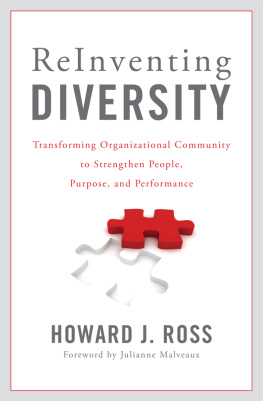
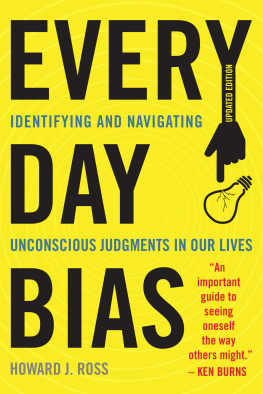
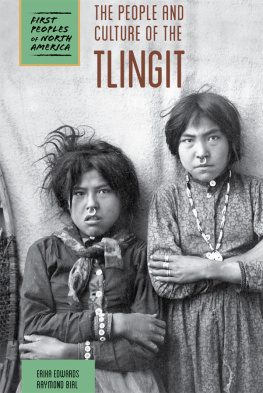
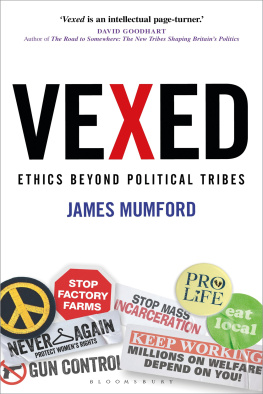
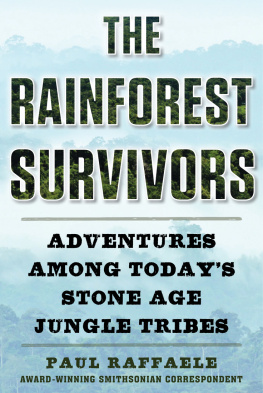
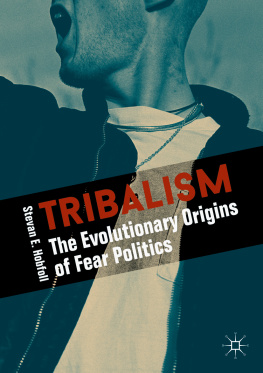
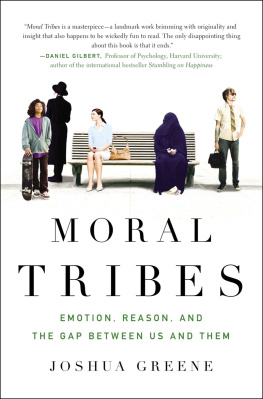
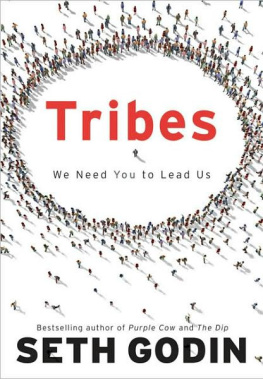
 Praise for Our Search for Belonging Howard Ross transformed our understanding of both bias and unconscious bias with his wonderful book Everyday Bias. Now he is transforming our understanding of why we have people in America both tribalizing and too often fi ghting each other in damaging and dysfunctional tribal ways. This book is a must-read for anyone who wants to understand the mess we are in today and what we need to do now to give us a better future for our organizations, our communities, and even our nation. This will be another iconic book. George Halvorson, former CEO, Kaiser PermanenteOur Search for Belonging is a powerful statement of hope in a disquieting time. Our social divide is creating major challenges on college campuses, in work places, and in society itself.
Praise for Our Search for Belonging Howard Ross transformed our understanding of both bias and unconscious bias with his wonderful book Everyday Bias. Now he is transforming our understanding of why we have people in America both tribalizing and too often fi ghting each other in damaging and dysfunctional tribal ways. This book is a must-read for anyone who wants to understand the mess we are in today and what we need to do now to give us a better future for our organizations, our communities, and even our nation. This will be another iconic book. George Halvorson, former CEO, Kaiser PermanenteOur Search for Belonging is a powerful statement of hope in a disquieting time. Our social divide is creating major challenges on college campuses, in work places, and in society itself.